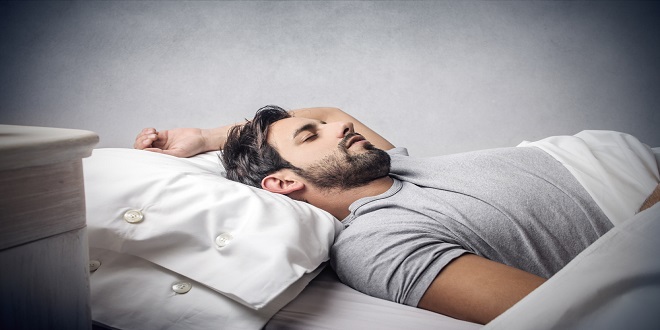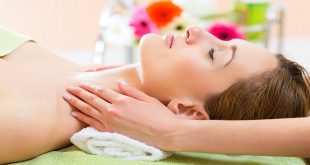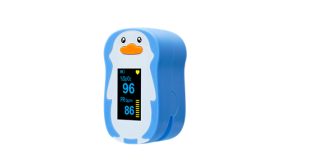If you’re one of the millions of people who suffer from low testosterone levels, you know how important it is to get proper treatment. One of the most common treatments for low testosterone is TRT therapy, which can be highly effective in restoring hormone levels and improving overall health. However, many men don’t realize that getting good sleep is also essential to TRT therapy. This blog post will discuss the importance of sleep with TRT therapy from the best TRT clinic and how you can ensure you get enough rest each night.
How Is Testosterone Involved In Sleep Cycle?
Testosterone is the main male sex hormone that causes additional sexual characteristics such as facial hair and a deep voice. Apart from its part in sexual development, testosterone also aids in the sleep cycle.
Studies have shown that testosterone levels are highest during the early morning hours and decline throughout the day. This decline is thought to be one of the reasons why men are more likely than women to suffer from sleep disorders such as insomnia.
In addition, testosterone levels have been linked to REM sleep, the stage of sleep associated with dreaming. Low testosterone levels are thought to reduce the amount of time spent in REM sleep, leading to less restful sleep. Given the importance of testosterone in both sexual development and sleep, it is not surprising that imbalances in hormone levels can have profound effects on health.
How Much Sleep Do We Need?
The average adult requires between 7 and 8 hours of sleep each day. Some people, however, might require more or less depending on their age, lifestyle, and health. When we are infants, we require more sleep than when we are adults. As we get older, though, our bodies may need less sleep overall.
People who have active lifestyles or work irregular hours may also need more sleep than those who have sedentary lifestyles or work regular hours. Finally, people with certain health conditions may need more or less sleep than average. For instance, people with insomnia often need more sleep, while those with obstructive sleep apnea often need less.
Although the amount of sleep we require varies from person to person, some broad guidelines can assist us in determining how much sleep we require. The data from the National Sleep Foundation suggests that most of us need somewhere between seven and nine hours of sleep each night. Adults (18-64) should aim for the higher end of that range, while older adults (65+) can get by with a little less.
However, these are just general guidelines; you must listen to your body to figure out how much sleep you need. If you’re consistently tired during the day, it’s a good idea to talk to your doctor about whether you might need more sleep.
Why Must You Sleep Properly When Taking Trt?
Testosterone replacement therapy (TRT) is a standard treatment for men with low testosterone levels. Although TRT can be highly effective in improving symptoms like fatigue and low sex drive, it’s essential to understand that this treatment comes with some risks. One of the most serious potential side effects of TRT is sleep apnea, a condition that can cause disruptions in breathing during sleep.
Sleep apnea is a severe condition that can increase the risk of heart disease, strokes, and other health problems. For this reason, ensuring that you sleep correctly when taking TRT is essential. If you have any concerns about your sleep quality, be sure to discuss them with your doctor. With proper care, you can minimize the risks of TRT and enjoy its many benefits.
7 Tips To Get Proper Sleep With Trt Therapy
- Get on a regular sleep schedule. Going to bed and rising at the same time each day (even on weekends!) is one of the essential things you can do in order to sleep well. This will assist with your body’s natural sleep rhythm, making it simpler to fall asleep and keep sleeping.
- Establish a bedtime routine. A calming bedtime ritual can help signal to your body that it’s time to wind down for the night. This could involve taking a warm bath, reading a book, or doing some gentle stretching exercises.
- Avoid stimulants before bed. Caffeine, nicotine, and other stimulants can interfere with sleep, so it’s best to avoid them in the evening. If you drink caffeinated beverages, do so earlier in the day, so they don’t keep you awake at night.
- Exercise regularly. Getting regular exercise can help improve your sleep quality by reducing stress and promoting relaxation. However, avoid exercising too close to bedtime as this can have the opposite effect and make it harder to fall asleep.
- Limit your exposure to light before bed. Blue light emitted from screens can suppress the production of melatonin, making it more difficult to fall asleep. Try to avoid using electronic devices for at least an hour before you go to bed.
- Keep your bedroom calm, dark, and quiet. Creating a peaceful environment in your bedroom can help you fall asleep more quickly and stay asleep throughout the night. Consider investing in blackout curtains or an eye mask to block out unwanted light, and use a white noise machine or earplugs to reduce distractions outside noise.
- Lastly, make sure your bedroom is only for sleeping. If you associate your bedroom with activities like working or watching TV, it can be more challenging to fall asleep when you get into bed. Instead, reserve your bedroom for sleep and sex so your mind and body will begin associating it with relaxation.
In The End
Though TRT therapy has many benefits, one of the most important is its role in improving sleep. As our bodies age, we produce less testosterone, which can lead to disturbed sleep and decreased energy levels. TRT therapy can help to address this issue by increasing testosterone levels and restoring a sense of balance in the body.
In addition, TRT therapy can also help to improve other aspects of sleep, such as increasing deep sleep and reducing the number of night awakenings. As a result, TRT therapy can be an effective treatment for those who suffer from sleep disturbances. If you are struggling with sleep issues, talk to your doctor about whether TRT therapy may be right for you.
 Naa Songs
Naa Songs





